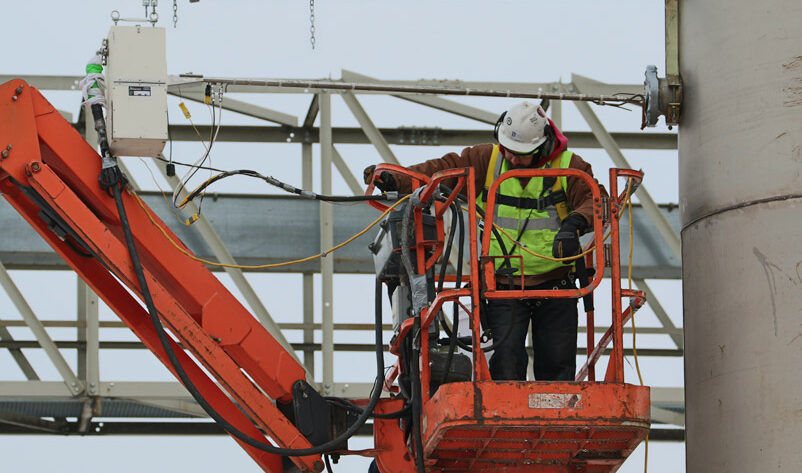API RP 2001 VOC Loss Emission Testing
The API Recommended Practice (RP) 2001 provides a comprehensive framework for managing volatile organic compound (VOC) emissions in the oil and gas industry. This practice is critical for ensuring compliance with environmental regulations and maintaining operational efficiency by minimizing losses during storage, transportation, and processing of petroleum products.
API RP 2001 focuses on various aspects of VOC management, including design, installation, operation, and maintenance of systems intended to reduce VOC emissions. The primary goal is to ensure that the equipment used in oil and gas operations adheres to best practices for minimizing VOC losses through evaporation. This not only helps in reducing environmental impact but also improves operational safety by preventing potential hazards associated with uncontrolled VOC releases.
Our testing services are tailored specifically to meet the stringent requirements outlined in API RP 2001. We employ advanced analytical techniques and state-of-the-art instrumentation to conduct thorough evaluations of your equipment's performance regarding VOC emissions. Our team of experts ensures that every aspect of compliance is thoroughly examined, providing you with reliable data and actionable insights.
The testing process involves several key steps. Initially, we assess the current condition and design of your storage tanks or transport vessels. This assessment helps identify potential areas where improvements can be made to reduce VOC emissions. Following this, detailed testing is conducted using equipment calibrated according to international standards such as ISO 15686-4:2017 for vapor pressure measurement.
During the test, we measure the amount of VOCs escaping from your systems under specified conditions, ensuring that they meet or exceed the stringent limits set by API RP 2001. Our laboratory adheres strictly to these standards and uses cutting-edge technology to ensure accuracy and reliability in our results.
The final step involves generating a comprehensive report detailing all findings along with recommendations for any necessary adjustments or improvements. This report serves as an invaluable tool for maintaining compliance while optimizing operational efficiency. By adhering closely to the guidelines provided by API RP 2001, you can rest assured that your organization is doing its part in protecting both human health and the environment.
In summary, our API RP 2001 VOC Loss Emission Testing service offers a robust solution for ensuring compliance with industry best practices. With our expertise and advanced methodologies, we help ensure that your operations remain efficient and environmentally friendly.
Benefits
Conducting API RP 2001 VOC Loss Emission Testing brings numerous benefits to companies operating within the oil and gas sector:
Regulatory Compliance: Ensuring adherence to stringent environmental regulations can help avoid costly penalties and legal issues. By meeting these standards, you demonstrate your commitment to sustainability.
Economic Efficiency: Reduced VOC losses translate into lower operational costs by optimizing resource usage. This efficiency also leads to cost savings on waste disposal and potential fines for non-compliance.
Safety Enhancement: Lowering VOC emissions decreases the risk of fire hazards, explosions, and other safety risks associated with volatile compounds in storage facilities.
Enhanced Reputation: Demonstrating a strong commitment to environmental responsibility can significantly enhance your company's reputation among stakeholders, customers, and regulatory bodies.
Innovation Opportunities: Identifying inefficiencies through testing allows for continuous improvement in processes and technologies. This proactive approach fosters innovation within the organization.
Operational Excellence: Consistent monitoring of VOC emissions helps maintain high standards of operational excellence, ensuring consistent quality across all stages of production.
Quality and Reliability Assurance
At our laboratory, we are committed to delivering accurate, reliable, and repeatable test results. Our team follows strict protocols based on API RP 2001 guidelines to ensure that each measurement is precise and consistent.
We use only the most advanced analytical instruments calibrated according to international standards such as ISO/IEC 17025:2017, ensuring that our equipment remains up-to-date with the latest technological advancements. This precision guarantees that the data we provide can be trusted for making informed decisions about your operations.
Our rigorous quality assurance processes include regular calibration checks and internal audits to maintain accuracy over time. Additionally, we participate in proficiency testing programs recognized globally to further validate our capability and consistency.
The combination of these factors ensures that every test conducted meets the highest standards set forth by API RP 2001. Our commitment to excellence allows us to offer peace of mind knowing that your company's compliance efforts are supported by robust scientific evidence.
Environmental and Sustainability Contributions
By adhering to the stringent requirements outlined in API RP 2001, our VOC Loss Emission Testing plays a crucial role in supporting environmental protection initiatives within the oil and gas industry. Here are some specific contributions:
Pollution Prevention: Minimizing VOC emissions helps prevent air pollution by reducing greenhouse gases and other harmful substances released into the atmosphere.
Resource Conservation: Lowering VOC losses ensures efficient use of resources, which is essential for sustainable development. This approach supports long-term economic viability while conserving natural resources.
Biodiversity Protection: Reduced pollution levels contribute to healthier ecosystems and habitats, supporting biodiversity conservation efforts worldwide.
Community Health Improvement: By lowering the concentration of harmful pollutants in ambient air, we help improve public health outcomes for nearby communities.
Social Responsibility: Demonstrating a strong commitment to environmental stewardship reflects positively on your company's social responsibility profile, fostering trust and goodwill among stakeholders.
Through these efforts, our API RP 2001 VOC Loss Emission Testing contributes significantly to achieving broader sustainability goals in the oil and gas sector. Our services play an integral part in promoting a cleaner environment and healthier communities.





